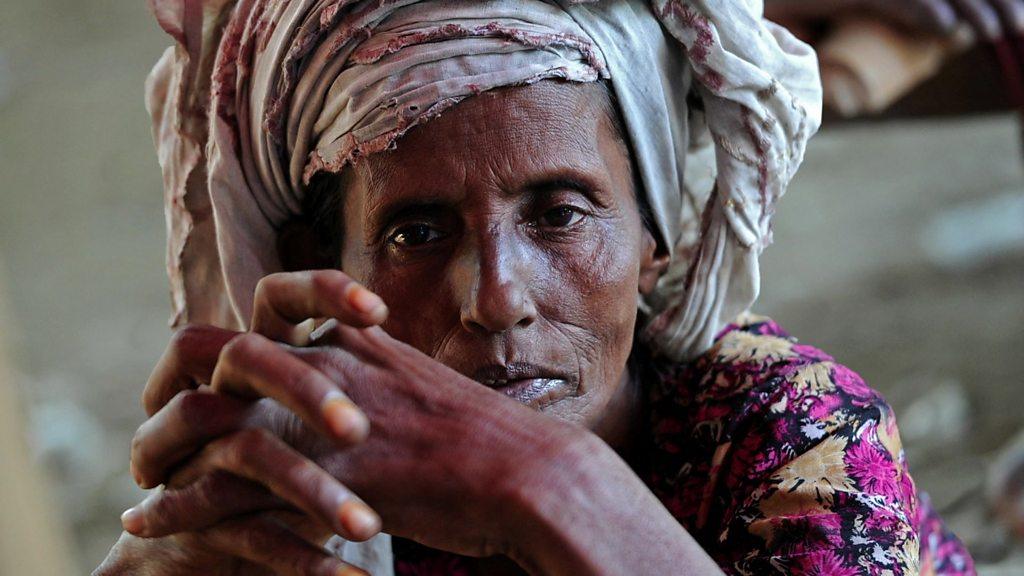Rohingya crisis: Johnson warns Suu Kyi over Muslim treatment
- Published
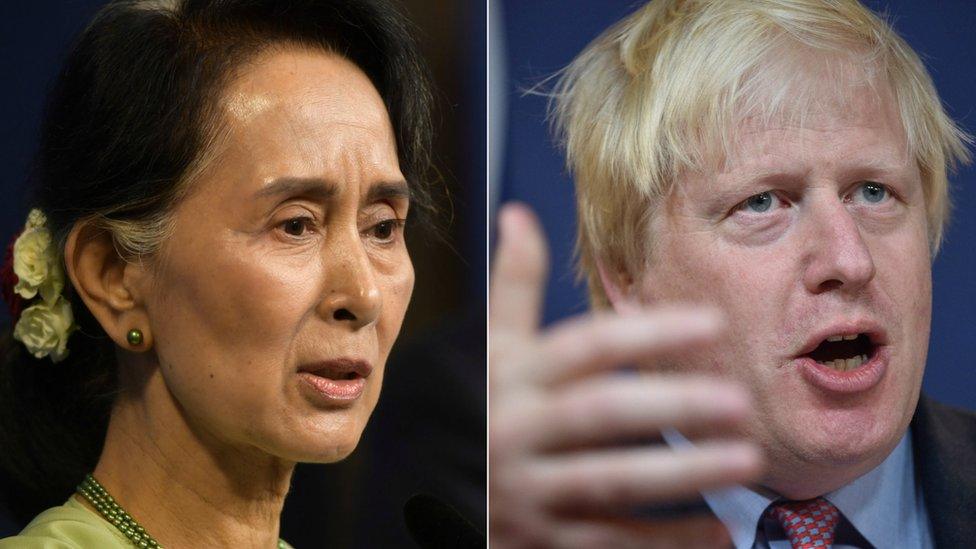
Foreign Secretary Boris Johnson has warned Myanmar's Aung San Suu Kyi that the treatment of the Muslim Rohingya is "besmirching" the country's reputation.
Mr Johnson called on Ms Suu Kyi, the country's de facto leader, to "use her remarkable qualities" to end prejudice against Muslims in Rakhine state.
Violence in the province erupted about a week ago, with some 58,000 refugees fleeing to neighbouring Bangladesh.
More than 100 people are thought to have died in the violence.
The Rohingya claim that security forces and Buddhist mobs of burning their villages.
Security officials in Myanmar, also known as Burma, claim they are reacting to more than 20 attacks on police posts by Muslim Rohingya militants.
Rakhine, the poorest region in Myanmar, is home to more than a million Rohingya. They have faced decades of persecution in the Buddhist-majority country, where they are not considered citizens.
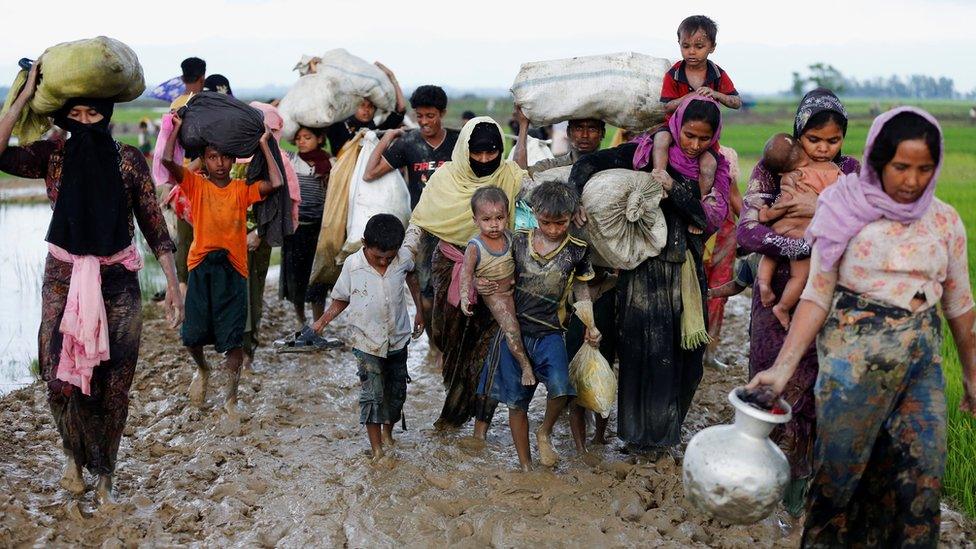
Rohingya refugees walk on the muddy road after travelling over the Bangladesh-Myanmar border
Ms Suu Kyi won the Nobel Peace Prize for her political activism in Myanmar, which led to the first non-military elected head of state in the country since the military coup in 1962.
Although Htin Kyaw was sworn in as president in 2016 - as Ms Suu Kyi is constitutionally barred from holding the position - she is considered the de facto leader of the country.
Ms Suu Kyi, who has the title state counsellor of Myanmar, came to prominence in the 1990s when she was placed under house arrest by the military government.
Mr Johnson said: "Aung San Suu Kyi is rightly regarded as one of the most inspiring figures of our age, but the treatment of the Rohingya is alas besmirching the reputation of Burma.
"She faces huge challenges in modernising her country. I hope she can now use all her remarkable qualities to unite her country, to stop the violence and to end the prejudice that afflicts both Muslims and other communities in Rakhine.
"It is vital that she receives the support of the Burmese military, and that her attempts at peacemaking are not frustrated.
"She and all in Burma will have our full support in this."
Rohingya Muslim women have been weeping on the Bangladesh border
Burma Campaign UK - which lobbies European governments in a bid to restore human rights and democracy in Burma - believes the foreign secretary could have gone further in his remarks.
Its director, Mark Farmaner, said Mr Johnson should have also criticised the armed forces' commander-in-chief, Ming Aung Hlaing.
He said: "Min Aung Hlaing's soldiers are the ones killing hundreds of Rohingya and he is the only person in Burma with the power to order soldiers to stop attacking Rohingya villagers, shooting children and burning families alive in their homes."
- Published19 September 2017
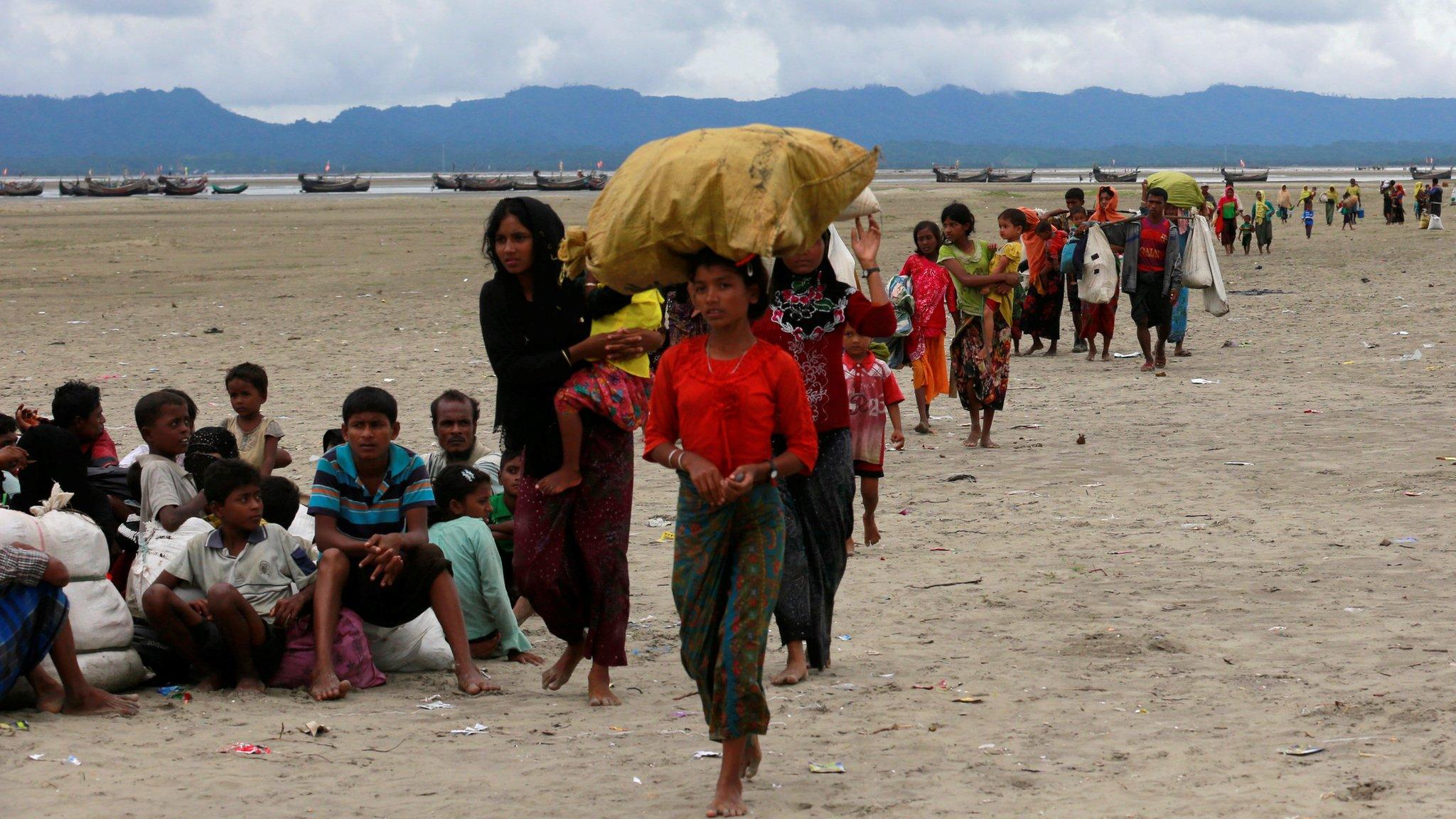
- Published28 August 2017
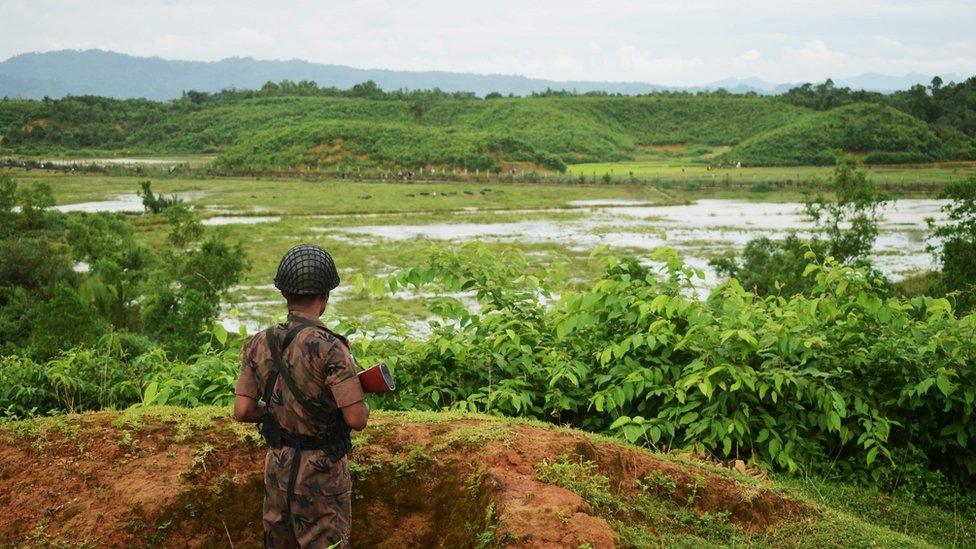
- Published24 August 2017
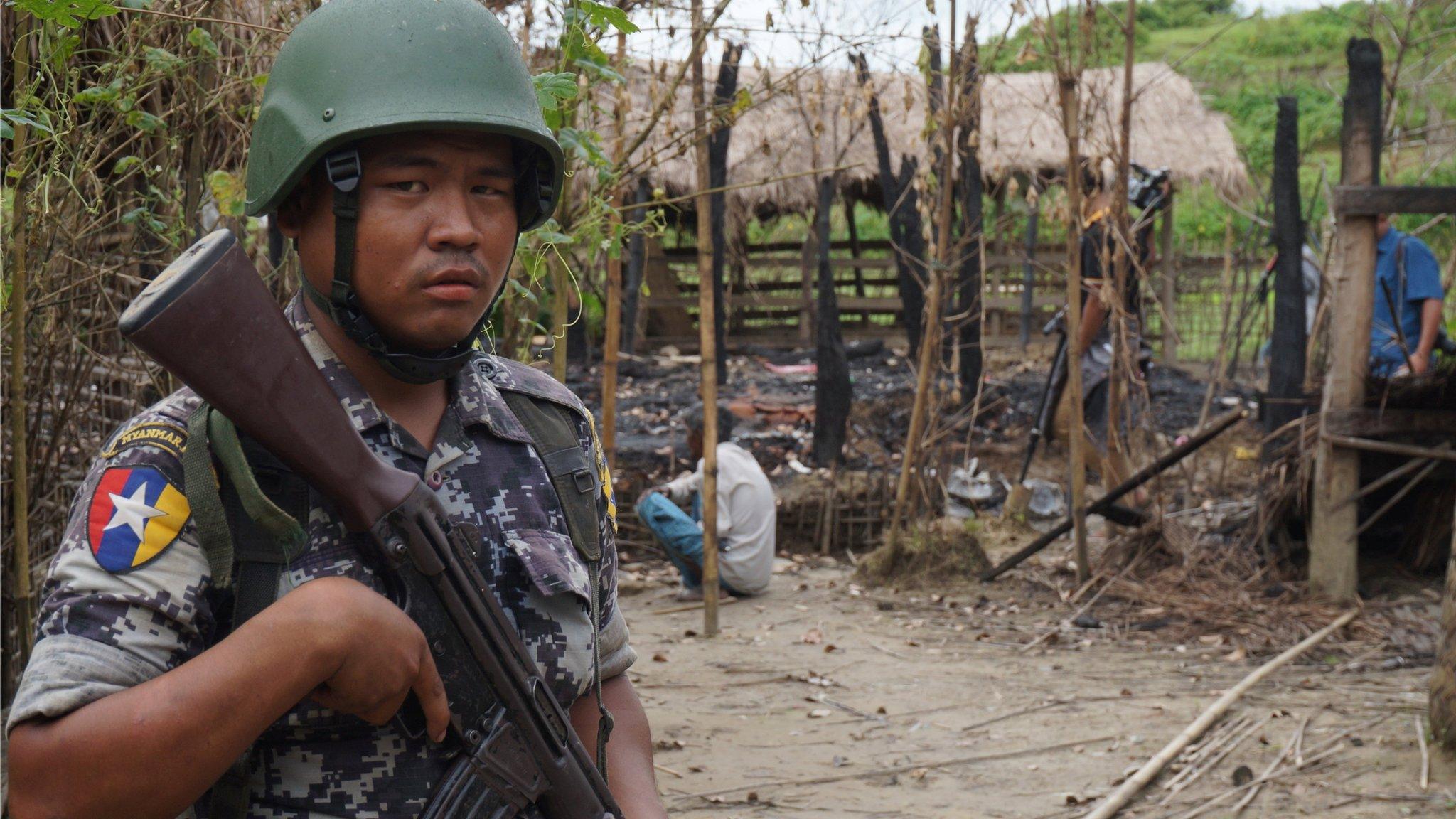
- Published11 March 2017
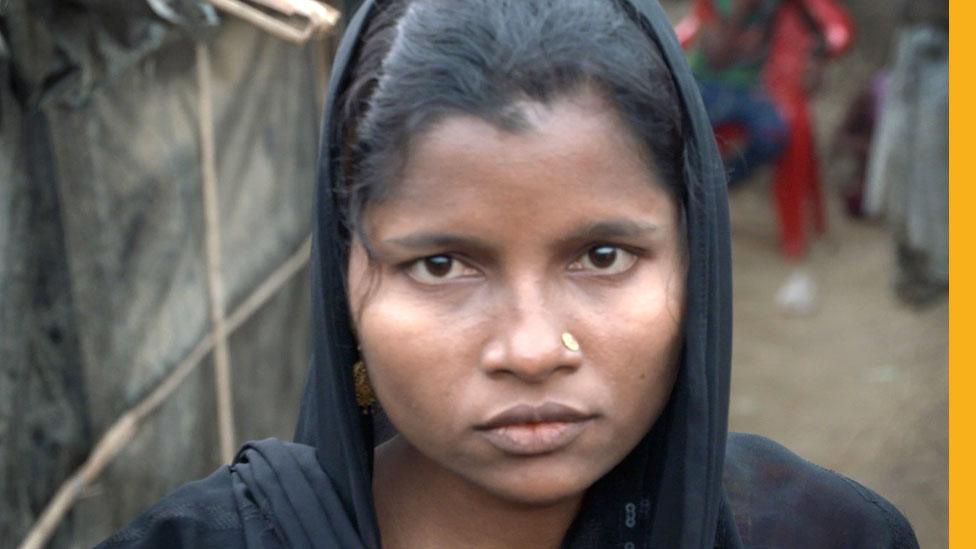
- Published27 January 2017
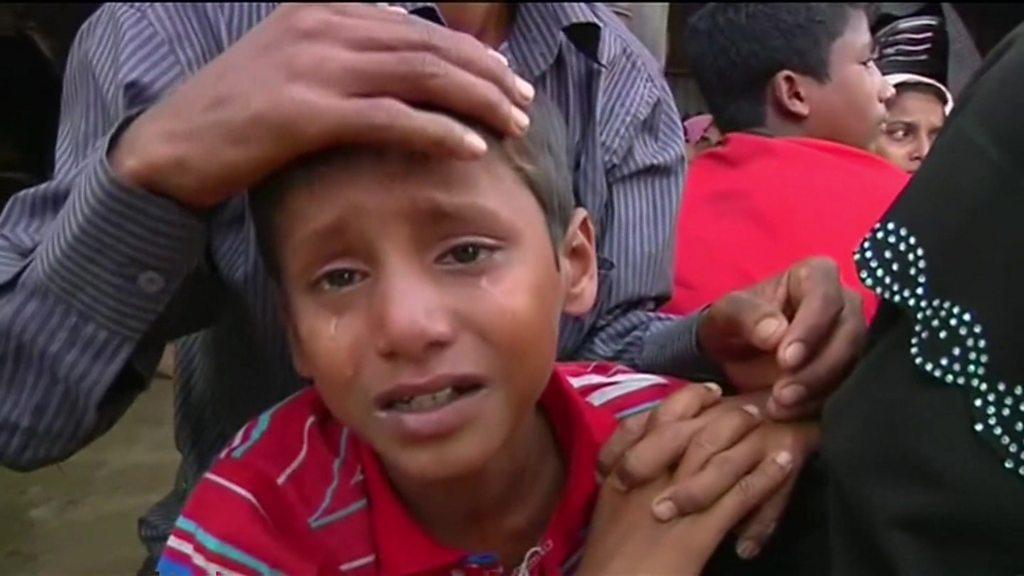
- Published11 March 2017
